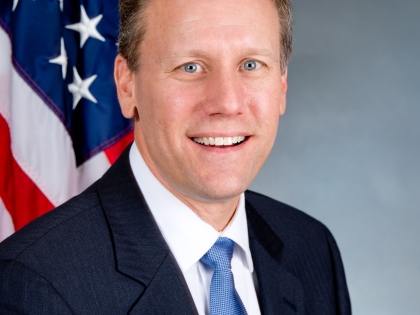
Independent Democratic Conference: More education, housing, child care, smart growth
By Rachel Shapiro on January 20, 2015 at 2:46 PM
STATEN ISLAND, N.Y. -- The Independent Democratic Conference in the state Senate released a 15-point plan Monday to invest in the state's workforce, education, housing, child care and smart growth communities.
The IDC, a five-member group of Democrats, including state Sen. Diane Savino (D-North Shore/Brooklyn), has had a coalition with Republicans to give them a working majority in the chamber and give the IDC a larger role in Senate business as co-leaders. Now with an outright majority, Republicans continue to work with the IDC, no longer sharing co-leader roles.
The IDC agenda for the 2015 legislative session, titled Invest New York, calls for increased spending in those areas to help workers, college students, seniors and families.
CHILD CARE/EDUCATION
With five points in their plan dedicated to child care, schools and education, the IDC proposes investing in this area, as well as saving people money.
One proposal establishes a grant program giving up to $2,000 to every student who graduates from an undergraduate or graduate school and is employed in public service in the state. The money would be used to pay outstanding student loan balances.
The proposal would also create a state tax deduction for interest paid on an undergraduate loan, matching the federal deduction.
The proposal also includes allowing parents to pre-pay college tuition, locking in a lower rate now instead of when a child may attend college years later.
A second proposal would invest $400 million to create a School Construction Trust Fund for school improvements and expansions.
A third proposal would make donations to public or private schools tax deductible. Those donations to private schools must be used to fund scholarship opportunities that qualify.
For child care, the IDC proposes increasing the existing Child and Dependent Care Credit by approximately 50 percent.
Another child care proposal calls for fully restoring funding for the NYS Child Care Block Grant back to 2010 funding levels and beyond, to account for rising needs.
The IDC wants the state to spend $100 million more on child care subsidies than was spent in 2014.
Also, part of the proposal is expanding the facilitated enrollment subsidy in the block grant to $25 million for cities that demonstrate need.
HOUSING
To invest in housing, the IDC proposed spending $675 million on middle income housing: $650 million on a program that would provide subsidies up to $125,000 per unit for middle class housing construction that remains affordable for 30 years; and $25 million for the Middle Income Housing Tax Credit, providing tax credits for developers that finance the construction of middle class units.
Another housing proposal focuses on public housing, investing millions in upgrades for the New York City Housing Authority. This three-pronged proposal calls for $500 million to be spent on repairs, rehabilitation and upgrades; restoring $12 million in annual state operating subsidies for the authority; and redeveloping underused authority land for affordable housing and mixed use.
The IDC supports giving preferences to disabled veterans and victims of domestic violence who meet the requirements for public housing.
Another proposal calls for housing seniors, those who are physically challenged or have mental issues.
A $40 million fund would be used to incentivize developers to build housing for middle- and low-income seniors.
A tax credit would be created for up to $7,500 for repairs to seniors' homes when they can't afford the cost of the project.
A $25 million housing disability fund would be created to leverage up to $18 million in private financing for developing or retrofitting up to 1,400 housing units for people with disabilities.
To otherwise help seniors, another proposal would allow seniors to claim a tax credit equal to 50 percent of out-of-pocket utility expenses.
Also, IDC proposes a 10 percent discount on senior Department of Motor Vehicle transactions.
JOBS/INCOME
The IDC wants to raise the minimum wage, including allowing municipalities to increase their wage above that of the state's.
Proposals to establish paid family leave and raise temporary disability insurance benefits are also on the table.
The group proposes creating an Agricultural Resurgency Program, a matching grant program to assist new and beginning farm businesses with start-up or expansion costs.
COMMUNITY DEVELOPMENT
The IDC proposes the creation of a $150 million fund that would provide matching grants for smart-growth investments that create communities that are more pedestrian focused, use environmentally friendly construction techniques and revitalize waterfront property.
They also propose a refundable tax credit offered to offset the cost of green development or retrofitting.
Lastly, a proposal to expand the Abandoned Property Neighborhood Relief Act of 2014 would require lenders to maintain foreclosed properties from falling into disrepair.
"Whether it is investing in middle class housing, making college more affordable or creating the next generation of classrooms, Invest New York is a blueprint for meeting the challenges of 21st century realities," Ms. Savino said. "This agenda will establish the Empire State as a leader once again in making the critical investments necessary to help working families live, work and raise a family in an affordable environment. We are fully invested in these ideas and along with our signature New Deal for New York plan, we're ready to bolster our workforce and ensure greater security for the middle class for years to come."
http://www.silive.com/news/index.ssf/2015/01/independent_democratic_confere_1.html

